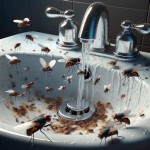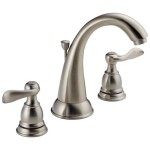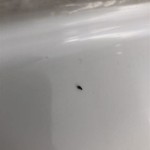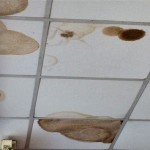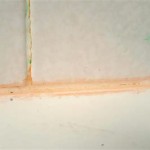Cold Water in Bathroom Sink Smells Bad: Causes and Solutions
A foul odor emanating from cold bathroom sink water can be a nuisance and a cause for concern. Understanding the potential causes and implementing appropriate solutions can quickly resolve this issue and restore clean, fresh-smelling water.
Potential Causes of Foul-Smelling Cold Water
Several factors can contribute to unpleasant odors in cold tap water. Identifying the source of the problem is crucial for effective remediation.
1. Biofilm Buildup: Biofilm, a slimy layer of bacteria, can accumulate within pipes, faucets, and aerators. These bacteria can produce sulfurous gases, leading to a rotten egg or sewage-like smell. Older plumbing systems are particularly susceptible to biofilm formation.
2. Hydrogen Sulfide Gas: Naturally occurring sulfate-reducing bacteria in groundwater can convert sulfates into hydrogen sulfide gas. This gas, even in small concentrations, produces a distinct rotten egg odor. Water heaters can sometimes exacerbate this issue by providing an ideal environment for bacterial growth.
3. Stagnant Water: Infrequently used sinks, like those in guest bathrooms, can harbor stagnant water. This stagnant water becomes a breeding ground for bacteria and can develop unpleasant odors. The lack of regular flushing allows odors to concentrate.
4. Water Heater Issues: Although the issue pertains to cold water, a malfunctioning water heater can sometimes introduce odors into the entire plumbing system. Anode rods within water heaters can react with bacteria, releasing hydrogen sulfide gas.
5. Drain Problems: Blockages or backups in the drain can trap decomposing organic matter, leading to foul odors that can permeate the bathroom. While not directly related to the cold water supply, drain issues can create the perception of contaminated water.
6. Contaminated Water Supply: In rare cases, the municipal water supply itself can be the source of the odor. Algal blooms, industrial pollution, or changes in water treatment processes can introduce unpleasant tastes and smells.
7. Material Degradation: Deteriorating plumbing materials, particularly older galvanized steel pipes, can corrode and release metallic particles into the water. These particles can contribute to an unpleasant metallic taste and smell.
Troubleshooting and Solutions
Addressing the odor problem requires identifying the underlying cause and applying the appropriate solution. Here are some effective troubleshooting steps:
Flushing the System
1. Run Cold Water: Begin by running the cold water tap on full blast for several minutes. This can help flush out stagnant water and any accumulated bacteria or gases.
2. Check Other Faucets: If the odor is present in other cold water faucets, the problem likely lies within the main water supply or plumbing system.
Cleaning and Maintenance
1. Clean Aerators: Remove and clean the faucet aerator. Soaking it in vinegar can help remove mineral deposits and biofilm.
2. Disinfect the Drain: Pour a mixture of baking soda and vinegar down the drain, followed by hot water, to eliminate drain odors.
3. Check the Water Heater: If the odor persists or is also present in hot water, consider flushing the water heater to remove sediment and bacteria. Inspect the anode rod and replace it if necessary.
Advanced Solutions
If simple flushing and cleaning don’t resolve the issue, more advanced solutions may be necessary.
1. Water Filter Installation: Installing a water filter, particularly one with activated carbon, can effectively remove odors and improve water quality.
2. Chlorination: For persistent bacterial contamination, chlorinating the plumbing system can be effective. This procedure should be performed by a qualified plumber.
3. Plumbing System Inspection: A professional plumber can inspect the plumbing system for leaks, corrosion, or other issues that may be contributing to the odor. They can also recommend and implement necessary repairs or replacements.
4. Contact the Water Supplier: If the odor is suspected to originate from the municipal water supply, contacting the water supplier is essential. They can investigate potential contamination issues and provide information about water quality.
Preventing Future Odor Problems
Implementing preventative measures can help maintain fresh-smelling water and avoid recurring odor issues.
1. Regular Flushing: Periodically flush infrequently used faucets to prevent stagnant water buildup.
2. Routine Cleaning: Regularly clean faucet aerators and drains to remove biofilm and prevent odor-causing bacteria.
3. Water Heater Maintenance: Flush the water heater annually to remove sediment and maintain optimal performance.
By understanding the potential causes of foul-smelling cold water and implementing appropriate solutions, homeowners can effectively address this issue and enjoy clean, fresh water throughout their homes.

How To Treat Smelly Water Finkens

Moldy Smelling Water From Bathroom Faucet Hometalk

How To Clean A Stinky Sink Drain Home Repair Tutor

Cloudy Smelly Or Discoloured Water Quality Help Thames

Why Do I Have Bad Sink Drain Smells In My Home Jackwardandsons
My Bathroom Smells Bad But Only When Its Hot Outside It Also Will Slightly Go Away I Run The Sink And Toilet Bathtub Any Thoughts On What Is

Your Household Water Quality Odors In Uga Cooperative Extension

Smelly Water Could Be A Sign Of Serious Trouble

Sink Smells Bad Remove Odor From Overflow Hole Clean With Eyme Cleaner

How To Clean Drains And Unclog Shower Or Sink Today
Related Posts

